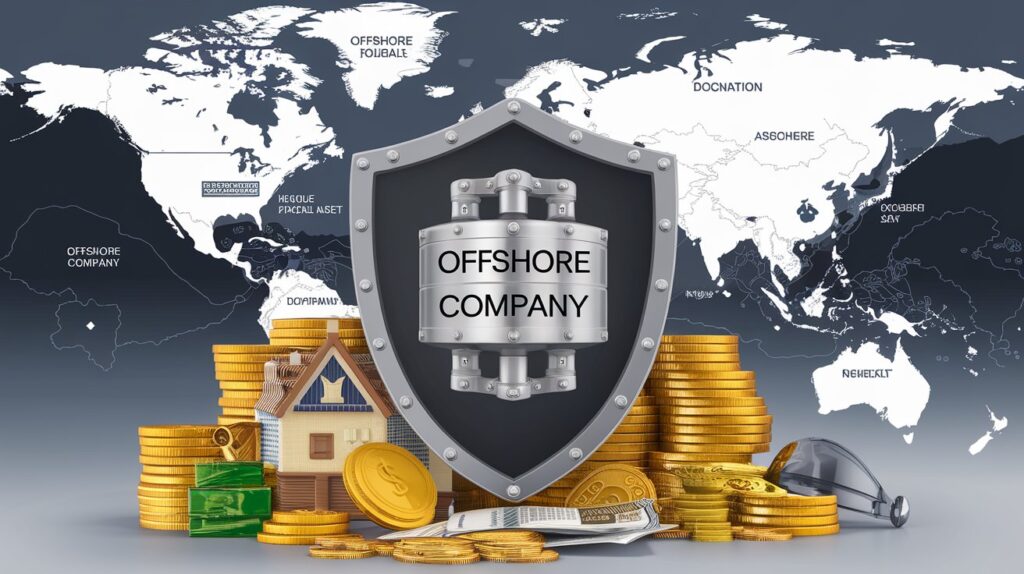What is an Offshore Company?
An offshore company is a business entity that is registered in a jurisdiction different from where its primary operations or owners reside. These companies are often incorporated in countries or territories known for their favorable tax regimes, business-friendly regulations, and privacy protections. Popular offshore jurisdictions include places like the Cayman Islands, the British Virgin Islands (BVI), and Belize, among others.
The primary reason businesses and individuals form offshore companies is to take advantage of the regulatory benefits these jurisdictions offer. Contrary to some misconceptions, offshore companies are entirely legal, provided they comply with the laws of both the jurisdiction in which they are incorporated and the countries where they conduct business.
PPP investments are not available to the general public and operate outside traditional financial markets, hence their «private» nature. These programs rely on relationships with banks and financial institutions to secure bank instruments used in trading cycles. PPPs are often leveraged for capital growth, wealth management, and asset protection.

Key Benefits of Offshore Companies
- Tax Efficiency: One of the most attractive reasons to set up an offshore company is the potential for lower taxes. In many offshore jurisdictions, businesses pay little to no corporate tax, capital gains tax, or income tax. For example, some international digital businesses can effectively pay 0% tax on their profits, provided they meet specific requirements.
It’s important to note that tax obligations for offshore companies vary depending on the jurisdiction, the residency of the business owners, and the nature of the company’s activities. As a result, many businesses operating internationally, especially in the digital or e-commerce space, choose offshore companies to manage their tax liabilities legally and efficiently.
- Asset Protection: Offshore companies can offer a higher level of asset protection for business owners. By incorporating in an offshore jurisdiction, individuals and corporations can shield their assets from potential legal claims, creditors, or even political instability in their home countries. This makes offshore entities a popular choice for high-net-worth individuals and businesses looking to safeguard their wealth.
- Enhanced Privacy: Many offshore jurisdictions offer greater privacy protections, meaning the details of the company’s owners (beneficial owners) are not publicly disclosed. This confidentiality can be particularly beneficial for individuals and businesses that wish to maintain discretion regarding their financial affairs or business activities.
- Ease of Incorporation: In many offshore jurisdictions, setting up a company is a relatively straightforward and fast process. Offshore companies often require minimal paperwork and can be established quickly with the assistance of specialized service providers. Additionally, in some jurisdictions, the requirement for physical presence or local directors is waived, making it easier for international entrepreneurs to establish and manage their businesses remotely.
- International Expansion: Offshore companies provide an ideal structure for international businesses, particularly those operating in sectors like e-commerce, digital services, consulting, and finance. By incorporating offshore, businesses can better navigate cross-border trade and regulatory complexities, reducing their operational costs while expanding globally.

How Offshore Companies Legally Reduce Taxes
One of the most significant benefits of an offshore company is its ability to legally reduce tax liabilities. Here’s how it works:
- Jurisdictional Tax Exemptions: Offshore jurisdictions like the Cayman Islands or BVI offer tax-free environments for international businesses. This means that as long as the company’s income is derived from outside the jurisdiction, it may not be subject to local taxes. Many online businesses and freelancers who operate globally take advantage of this by registering offshore companies and routing their income through these tax-efficient structures.
- Double Taxation Agreements (DTAs): Some offshore jurisdictions have entered into double taxation agreements with other countries, allowing businesses to avoid being taxed twice on the same income. This can further optimize tax efficiency when dealing with international clients or partners.
- Legal Compliance: It’s important to emphasize that the practice of using an offshore company to reduce taxes is completely legal, provided it adheres to the tax regulations of both the offshore jurisdiction and the business owner’s home country. Businesses must carefully structure their offshore entities in compliance with local and international tax laws, including regulations related to controlled foreign corporations (CFC) and anti-tax avoidance measures.

Uses of Offshore Companies
- International E-Commerce and Digital Businesses: Many digital entrepreneurs and e-commerce companies use offshore companies to streamline their global operations. By incorporating offshore, they can sell to customers worldwide while benefiting from favorable tax regimes and minimal regulatory burdens.
- Investment Holding Companies: Offshore companies are commonly used as holding structures for investments, including real estate, stocks, and other assets. This allows investors to minimize their tax obligations on dividends, capital gains, and other forms of income derived from these investments.
- Intellectual Property (IP) Holding Companies: Intellectual property (such as patents, trademarks, and copyrights) can be held in an offshore company. By licensing the use of this IP to other businesses or subsidiaries, the offshore entity can collect royalties in a tax-efficient manner.
- Wealth Management and Estate Planning: Offshore companies are often used by high-net-worth individuals for estate planning and wealth management purposes. They offer a flexible and secure structure to manage personal and family wealth while ensuring privacy and tax efficiency.

Is It Legal to Operate an Offshore Company?
Yes, offshore companies are legal. As long as the business is registered in compliance with the local laws of the offshore jurisdiction and the owner adheres to the tax and regulatory requirements of their home country, offshore companies are completely legitimate. Many reputable multinational corporations, investment funds, and high-net-worth individuals use offshore structures for tax planning, asset protection, and global business expansion.
However, businesses must be careful to avoid tax evasion, which is illegal. Tax evasion involves deliberately hiding income or assets from tax authorities, whereas tax avoidance (the practice of legally reducing tax liabilities) is allowed under law.

Interested in Forming an Offshore Company?
At Tresore Capital Partners, we offer expert guidance on incorporating offshore companies tailored to your specific business needs. Whether you’re looking to reduce your tax burden, protect your assets, or expand your international operations, our team of professionals is here to help. Contact us today to learn more about how forming an offshore company can benefit your business.



